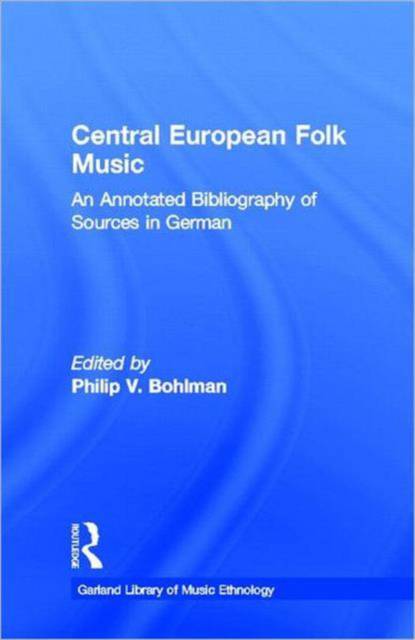
- Retrait gratuit dans votre magasin Club
- 7.000.000 titres dans notre catalogue
- Payer en toute sécurité
- Toujours un magasin près de chez vous
- Retrait gratuit dans votre magasin Club
- 7.000.000 titres dans notre catalogue
- Payer en toute sécurité
- Toujours un magasin près de chez vous
175,95 €
+ 351 points
Format
Description
This is the first annotated bibliography, in German or English, to gather the rich sources for German-language folk-music scholarship. It presents a comprehensive view of both historical and contemporary trends in a field embracing folkloristics and ethnomusicology, as well as philological and cultural studies. Beginning with early theories of folk song-formulated by Herder, Goethe, the Brothers Grimm, and others-the book examines the most important collections of the 19th-century folk-song movement, and surveys the 20th-century institutions and publications that have made folk-music scholarship essential to an understanding of German-speaking Europe. The book represents the enormous diversity of folk music. Ideas of genre and classification contrast with the ways in which minority and ethnic groups have contributed to the complex constructs of 19th- and 20th-century nationalism. The intellectual history in this book often takes the form of a clash between institutions and the forceful personalities of scholars who theorized that folk music was the product of individuals or the linguistic core of nations. Entries that illustrate the ways in which constructs of folk music have contributed to the politics of culture (e.g., in Nazi Germany or in the workers' culture of the former German Democratic Republic) also constitute the expansive musical landscape covered by this book The author includes diverse disciplinary perspectives, not just those of folklorists, but also concepts from ethnomusicology, historical musicology, and religious and cultural studies. In addition to traditional studies of the canons of German folk music (e.g., ballads and singing-society repertories), Bohlman includes studies of religious and ethnic minorities, and of German folk music in nations and regions outside Central Europe. The comprehensive nature of this book, not only makes available a rich history of scholarship, but also contextualizes Central European folk music as a vital and critical discipline for the interpretation of a changing Europe. Includes index.
Spécifications
Parties prenantes
- Auteur(s) :
- Editeur:
Contenu
- Nombre de pages :
- 338
- Langue:
- Anglais
- Collection :
Caractéristiques
- EAN:
- 9780815303046
- Date de parution :
- 01-08-96
- Format:
- Livre relié
- Format numérique:
- Genaaid
- Dimensions :
- 146 mm x 228 mm
- Poids :
- 566 g







